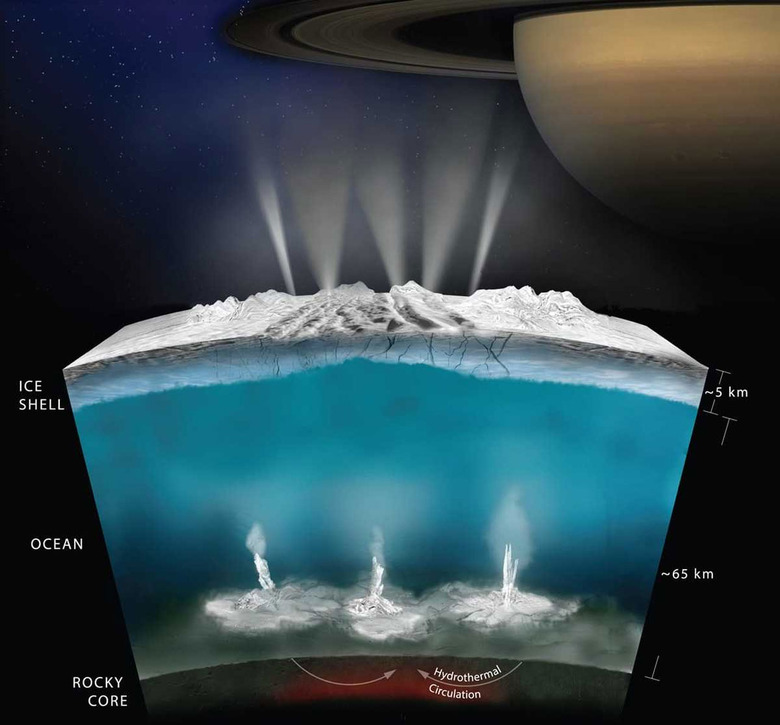Worlds With Underground Oceans Could Be More Conducive To Life Than Earth
Researchers from the Southwest Research Institute have put forward a new theory that says worlds with underground oceans could be more conducive to life than planets like Earth with surface oceans. The researcher says one of the most significant discoveries in planetary science in the last quarter decade has been worlds with oceans beneath layers of rock and ice are common in the solar system.
Worlds of the sort include icy moons like Europa, Titan, Enceladus, and distant bodies like Pluto. Researcher S. Allen Stern wrote in his research that the prevalence of interior water ocean worlds in our solar system suggests they are likely to be prevalent in other star systems as well. He believes the presence of interior water oceans vastly expands the conditions for planetary habitability and biological survival over time.
It's known that planets like Earth with oceans on their surface have to be within a narrow range of distances from the host star to maintain temperatures required for the liquid oceans on their surface. However, worlds with interior water oceans can be found across a much wider range of distances from their stars. This dramatically increases the number of potentially habitable worlds likely to exist around the galaxy.
Stern also believes that planets like Earth with surface oceans are more subject to threats to life that could develop from asteroids and comets, solar flares spewing dangerous radiation, and nearby supernova explosions, among others. Interior water ocean worlds would be impervious to this sort of threat because oceans are protected by a roof of ice and rock, often several to many tens of kilometers thick. This makes the interior water ocean worlds better suited to provide environmental stability and less likely to suffer threats to life from their atmosphere, star, or solar system.

Stern also notes that the layers of rock and ice that protect these interior oceans also conceal life from being detected by virtually all astronomical techniques available to scientists today. Stern also believes that interior water ocean worlds could help crack the so-called Fermi Paradox by answering questions about why we don't see obvious evidence of life in the universe.
